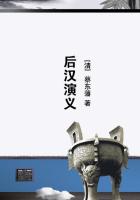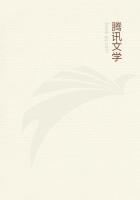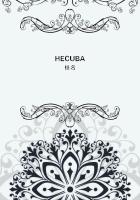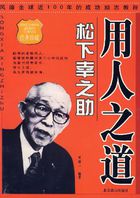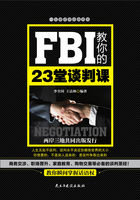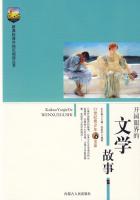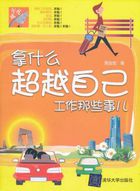If society may thus be considered as a school for letters, it is probable that its lessons are varied in every separate state, and in every age. For a certain period, the severe applications of the Roman people to policy and war suppressed the literary arts, and appear to have stifled the genius even of the historian and the poet. The institutions of Sparta gave a professed contempt for whatever was not connected with the practical virtues of a vigorous and resolute spirit: the charms of imagination, and the parade of language, were by this people classed with the arts of the cook and the perfumer: their songs in praise of fortitude are mentioned by some writers; and collections of their witty saying and repartees are still preserved: they indicate the virtues and the abilities of an active people, not their proficiency in science or literary taste. Possessed of what was essential to happiness in the virtues of the heart, they had a discernment of its value, unimbarrassed by the numberless objects on which mankind in general are so much at a loss to adjust their esteem: fixed in their own apprehension, they turned a sharp edge on the follies of mankind. 'When will you begin to practise it?' was the question of a Spartan to a person who, in an advanced age of life, was still occupied with questions on the nature of virtue.
While this people confined their studies to one question, How to improve and to preserve the courage and the disinterested affections of the human heart? their rivals the Athenians gave a scope to refinement on every object of reflection or passion. By the rewards, either of profit or of reputation, which they bestowed on every effort of ingenuity employed in ministering to the pleasure, the decoration, or the conveniency of life; by the variety of conditions in which their citizens were placed; by their inequalities of fortune, and their several pursuits in war, politics, commerce, and lucrative arts, they awakened whatever was either good or bad in the natural dispositions of men. Every road to eminence was opened: eloquence, fortitude, military skill, envy, detraction, faction, and treason, even the muse herself, was courted to bestow importance among a busy, acute, and turbulent people.
From this example, we may safely conclude, that although business is sometimes a rival to study, retirement and leisure are not the principal requisites to the improvement, perhaps not even to the exercise, of literary talents. The most striking exertions of imagination and sentiment have a reference to mankind: they are excited by the presence and intercourse of men:
they have most vigour when actuated in the mind by the operation of its principal springs, by the emulations, the friendships, and the oppositions, which subsist among a forward and aspiring people. Amidst the great occasions which put a free, and even a licentious, society in motion, its members become capable of every exertion; and the same scenes which gave employment to Themistocles and Thrasybulus, inspired, by contagion, the genius of Sophocles and Plato. The petulant and the ingenuous find an equal scope to their talents; and literary monuments become the repositories of envy and folly, as well as of wisdom and virtue.
Greece, divided into many little states, and agitated, beyond any spot on the globe, by domestic contentions and foreign wars, set the example in every species of literature. The fire was communicated to Rome; not when the state ceased to be warlike, and had discontinued her political agitations, but when she mixed the love of refinement and of pleasure with her national pursuits, and indulged an inclination to study in the midst of ferments, occasioned by the wars and pretensions of opposite factions. It was revived in modern Europe among the turbulent states of Italy, and spread to the North, together with the spirit which shook the fabric of the Gothic policy. it rose while men were divided into parties, under civil or religious denominations, and when they were at variance on subjects held the most important and sacred.
We may be satisfied, from the example of many ages, that liberal endowments bestowed on learned societies, and the leisure with which they were furnished for study, are not the likeliest means to excite the exertions of genius: even science itself, the supposed offspring of leisure, pined in the shade of monastic retirement. Men at a distance from the objects of useful knowledge, untouched by the motives that animate an active and a vigorous mind, could produce only the jargon of a technical language, and accumulate the impertinence of academical forms.
To speak or to write justly from an observation of nature, it is necessary to have felt the sentiments of nature. He who is penetrating and ardent in the conduct of life, will probably exert a proportional force and ingenuity in the exercise of his literary talents: and although writing may become a trade, and require all the application and study which are bestowed on any other calling; yet the principal requisites in this calling are, the spirit and sensibility of a vigorous mind.
In one period, the school may take its light and direction from active life; in another, it is true, the remains of an active spirit are greatly supported by literary monuments, and by the history of transactions that preserve the examples and the experience of former and of better times. But in whatever manner men are formed for great efforts of elocution or conduct, it appears the most glaring of all other deceptions, to look for the accomplishments of a human character in the mere attainments of speculation, whilst we neglect the qualities of fortitude and public affection, which are so necessary to render our knowledge an article of happiness or of use.
NOTES:
1. See Russian Atlas.
2. The Tchutzi.
3. Notes to the Genealogical History of the Tartars.
4. D'Arvieux.
5. Charlevoix.
6. The Dutch sailors who were employed in the siege of Malaco, tore or burnt the sail-cloth which was given them to make tents, that they might not have the trouble of making or pitching them.
Voy. de Matelief.
7. Compare the state of Hungary with that of Holland.
8. De Retz Memoirs.
9. Part I, sect. 10.
10. See Dr Robertson's History of Scotland, b. 1.
11. Collection of Dutch Voyages.
12. Strahlenberg.
13. Dampier.
14. Xenophon.
15. Thucydides, book 1.
16. Polybius.
17. In Britain, by the suspension of Habeas corpus.
18. D'Arvieux's History of the Arabs.
19. Plutarch in the life of Solon. -- Livy.
20. See part 2, sect. 2.
21. Aristotle.
22. See Longinus.
23. Quoted by Demetrius Phalerius.

